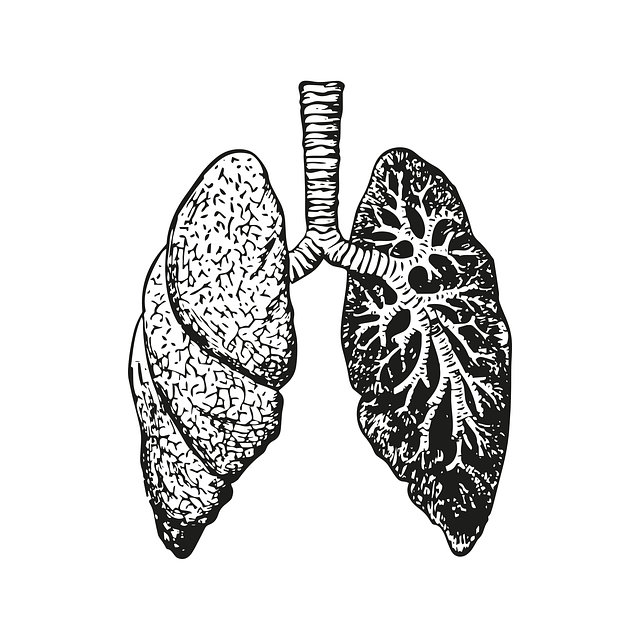Medical Record Translation Precision: Legal Imperatives in UK Court Cases
In the UK's legal system, precise translations of medical records are paramount due to their critical role in court cases. The accuracy of Medical Record Translation UK is essential as it affects the outcome of litigation and safeguards individ…….

In the UK's legal system, precise translations of medical records are paramount due to their critical role in court cases. The accuracy of Medical Record Translation UK is essential as it affects the outcome of litigation and safeguards individual rights by ensuring the correct interpretation of medical information. Legal professionals must collaborate with specialized certified translators knowledgeable in medical terminology to maintain legal integrity, as the veracity of medical records directly impacts justice. The UK's regulatory framework for medical record translation within legal contexts is stringent, governed by acts like the Data Protection Act 2018 and the Human Rights Act 1998, and informed by ethical guidelines from bodies such as the General Medical Council (GMC) and the NHS Confidentiality Code of Practice. Translators adhering to these standards must be qualified under the ISO 17100:2015 standard, which ensures professionalism and quality in translations for legal purposes. The precision of Medical Record Translation UK services is critical for fairness, especially when dealing with a multilingual population, and for ensuring that non-English speakers receive justice based on accurate medical evidence. These services are integral to the UK's judicial framework, requiring experts who can navigate the complexities of both healthcare and jurisprudence to provide reliable and contextually appropriate translations.
navigating the intricacies of legal translations, particularly in the realm of medical records for UK court cases, is a task that demands precision and expertise. This article delves into the critical importance of accurate translation within legal proceedings, highlighting the necessity of ‘Medical Record Translation UK’ to uphold justice and fairness. We explore the legal framework that governs this specialized field, emphasizing the pivotal role of professional translators in ensuring the integrity of sensitive information. Furthermore, we outline best practices for handling medical records in a legal context, ensuring that every party involved receives clear, precise, and legally sound documentation. Understanding these aspects is crucial for maintaining the trust and accuracy required in legal settings, particularly when lives and outcomes are at stake.
- Understanding the Necessity of Accurate Medical Record Translation for UK Court Cases
- The Legal Framework Governing Medical Record Translation in the UK
- The Role of Professional Translators and the Implications of Inaccuracies
- Navigating the Complexities: Best Practices for Medical Record Translation in Legal Settings
Understanding the Necessity of Accurate Medical Record Translation for UK Court Cases

In the context of UK court cases, the precise translation of medical records is paramount. The accuracy of medical record translation UK plays a critical role in legal proceedings where patient information, treatment histories, and diagnostic reports are often central to the case at hand. Any misinterpretation or mistranslation can lead to misleading evidence, potentially skewing the outcome of legal decisions. Legal professionals must engage with certified translators who specialize in medical documentation to ensure that the translated records maintain their original context and meaning. This is not merely a matter of linguistic precision but also one of legal integrity, as the veracity of medical information can directly impact the rights and well-being of individuals involved. The stakes are high, and the responsibility falls on both the legal and translational experts to uphold the standards of justice by providing clear, accurate, and comprehensible medical record translation UK in court settings.
The necessity for accurate medical record translation UK extends beyond mere legality; it is a cornerstone of fairness within the judicial system. In cases where medical history is disputed or where expert testimony relies on detailed patient records, the reliability of these translations becomes critical. Translators must possess not only fluency in both languages but also an understanding of medical terminology and the legal context in which these documents will be used. This dual expertise ensures that all parties involved can trust the information presented, facilitating a more equitable and transparent legal process. Consequently, the selection of a competent medical record translation UK service is a strategic decision that can significantly influence the course of litigation.
The Legal Framework Governing Medical Record Translation in the UK

Within the United Kingdom, the translation of medical records for legal purposes is a highly specialized task governed by stringent regulations and standards to ensure accuracy and confidentiality. The legal framework surrounding medical record translation in the UK is primarily underpinned by the Data Protection Act 2018 and the Human Rights Act 1998, which mandate that personal data, including medical information, must be handled with care and protected against unauthorized access or disclosure. Professional translators engaged in this field must adhere to these legal requirements, maintaining the privacy of individuals whose records they translate. Furthermore, translators are expected to comply with the General Medical Council (GMC) guidelines, which dictate the ethical responsibilities of healthcare professionals and those involved in the handling of medical information. Additionally, the NHS Confidentiality Code of Practice outlines how patient-identifiable information should be managed within the National Health Service (NHS), influencing the processes of translation for legal use. The UK’s commitment to quality and professionalism in translations is also reflected in the ISO 17100:2015 standard, which provides a framework for translation companies to follow, ensuring that medical record translators possess the necessary qualifications, expertise, and experience to deliver precise and reliable translations for legal proceedings. This robust legal framework ensures that medical records translated for UK court cases are not only accurate but also compliant with the highest legal and ethical standards.
The Role of Professional Translators and the Implications of Inaccuracies

In the context of UK court cases, the legal translations of medical records assume paramount importance due to the multilingual nature of society. Professional translators specialising in Medical Record Translation UK play a critical role in accurately conveying the contents of medical documentation from one language to another. These experts are not only linguistically proficient but also well-versed in medical terminology, ensuring that nuances and complexities within the records are faithfully represented. The precision of their work is indispensable as it directly impacts the legal proceedings and the rights of individuals involved. Any inaccuracies in translation can lead to misinterpretation of medical histories or conditions, potentially skewing the outcome of a case. Consequently, the integrity of such translations cannot be overstated; they are the linchpin that supports the fairness of the judicial process for non-English speaking parties. It is imperative that these translations are carried out by qualified professionals to avoid the detrimental consequences that could arise from miscommunication or misunderstanding of medical information. The reliability and accuracy of Medical Record Translation UK services thus stand as a cornerstone in the legal system, ensuring that all parties have equal access to justice and that decisions are made based on comprehensive and precise medical evidence.
Navigating the Complexities: Best Practices for Medical Record Translation in Legal Settings

In the intricate intersection of healthcare and jurisprudence, the translation of medical records for UK court cases demands the highest level of precision and expertise. Medical Record Translation UK services must navigate a multitude of complexities, from the precise terminology inherent in medical documentation to the nuanced legal language required in judicial settings. Best practices in this domain emphasize the necessity for certified translators with specialized knowledge in both medicine and law, ensuring that all details within these records are accurately conveyed. The chosen linguists should be adept at handling sensitive information, upholding patient confidentiality, and maintaining compliance with legal standards, such as the Data Protection Act 2018. Moreover, these professionals must be well-versed in both English and the target language, adept at contextual translation to avoid misinterpretations that could impact the outcome of legal proceedings. Utilizing advanced translation technology, when appropriate, complements human expertise to streamline the process while maintaining accuracy. This dual approach ensures that medical records are translated with the utmost precision, providing legal entities in the UK with reliable and clear translations that uphold the integrity of both the medical and legal realms.
In concluding this discussion on the critical role of medical record translation within UK court cases, it is clear that the precision and expertise of professional translators are paramount. The legal framework in place, which includes the Medical Record Translation UK standards, ensures a foundation for reliable and accurate translations. Given the stakes involved in legal proceedings, the importance of choosing seasoned professionals who specialize in this niche cannot be overstated. Adherence to best practices not only upholds justice but also safeguards the integrity of legal outcomes. As such, it is imperative that all parties involved in these processes recognize the value and necessity of expert medical record translation services.






